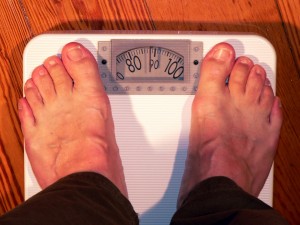 Maybe you did not hear about the sentence “binge eating disorder” in which you eat abnormally large amounts of food with an inability to stop eating when your body is technically full. Binge eating is not just a habit and this is a dangerous, life threatening condition, but help is available and recover is possible.
Maybe you did not hear about the sentence “binge eating disorder” in which you eat abnormally large amounts of food with an inability to stop eating when your body is technically full. Binge eating is not just a habit and this is a dangerous, life threatening condition, but help is available and recover is possible.
While you ca over eat every once in a while, binge eaters consistently eat too much but do not use laxatives or purge to get rid of the food. Many people who have binge eating disorder have weight problems but some are of a normal weight. The signs and symptoms of having binge eating disorder include the following:
- Having out of control eating behaviors
- Eating huge amounts of food over a short period of time.
- Eating even when you aren’t hungry.
- Eating rapidly when you binge eat.
- Eating in secret or when you are alone.
- Feeling ashamed, guilty, or depressed about your eating behavior.
- Always going on a diet, usually without success.
There are some factors in your life that can increase your chances of having this type of problem. These include the following:
- Psychological problems. Most people who have this problem have a negative self-image and don’t feel positive about their accomplishments and skills. You can overeat because you are bored, stressed out, or have a poor image of your body.
- Family history. If you have a first-degree relative such as a sibling or a parent who suffer from binge eating difficulties, you might be at an increased risk yourself. It may mean that there are some hereditary factors that relate to developing this type of eating disorder.
- Over dieting. If you have a long history of dieting as far back as childhood, this may have been a way of compensating for times in which you were otherwise overeating.
- You can have binge eating disorder at any age but most people have an onset of the disorder in their teens or in their early twenties.
The Dangers and Possible Solutions
Binge eating can cause you both physical and psychological problems. Some of the major dangers of binge eating include feeling terrible about yourself and how your life is going, being socially isolated from others, and for sure, suffering from obesity or being overweight. The psychiatric disorders most commonly linked to binge eating problems includes things like bipolar disorder, depressive symptoms, anxiety disorders, and illicit drug use.
 In order to make the diagnosis of binge eating disorder, you may need to see a psychological professional for a full evaluation of your eating behaviors. The doctor may do a complete physical examination, take blood or urine tests, and perhaps refer you to a center for sleep disorders for a consultation.
In order to make the diagnosis of binge eating disorder, you may need to see a psychological professional for a full evaluation of your eating behaviors. The doctor may do a complete physical examination, take blood or urine tests, and perhaps refer you to a center for sleep disorders for a consultation.
According to the Diagnostic and Statistical Manual of Mental Disorders, you can do simple things in order to make the diagnosis of binge eating disorder. If you have a lack of control about eating, including how much you eat and whether or not you can actually stop eating, the first step you should do is to have the conscious that binge eating can be dangerous. It affects your overall health and can lead to mental problems that only perpetuate the eating problem.













